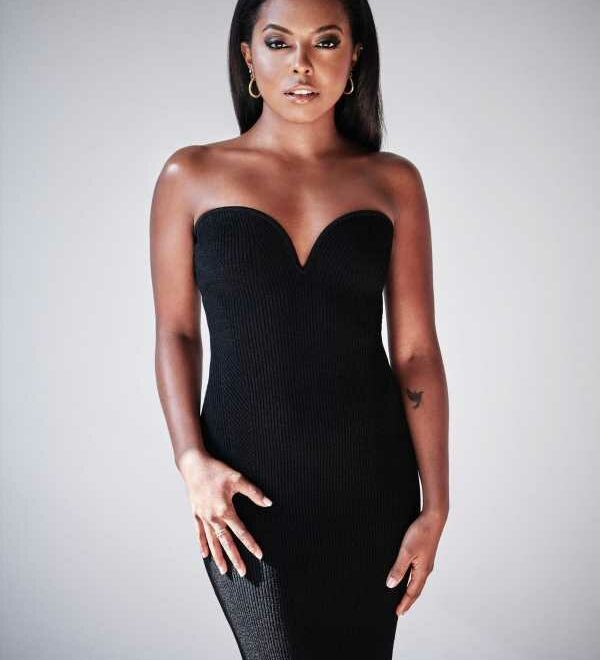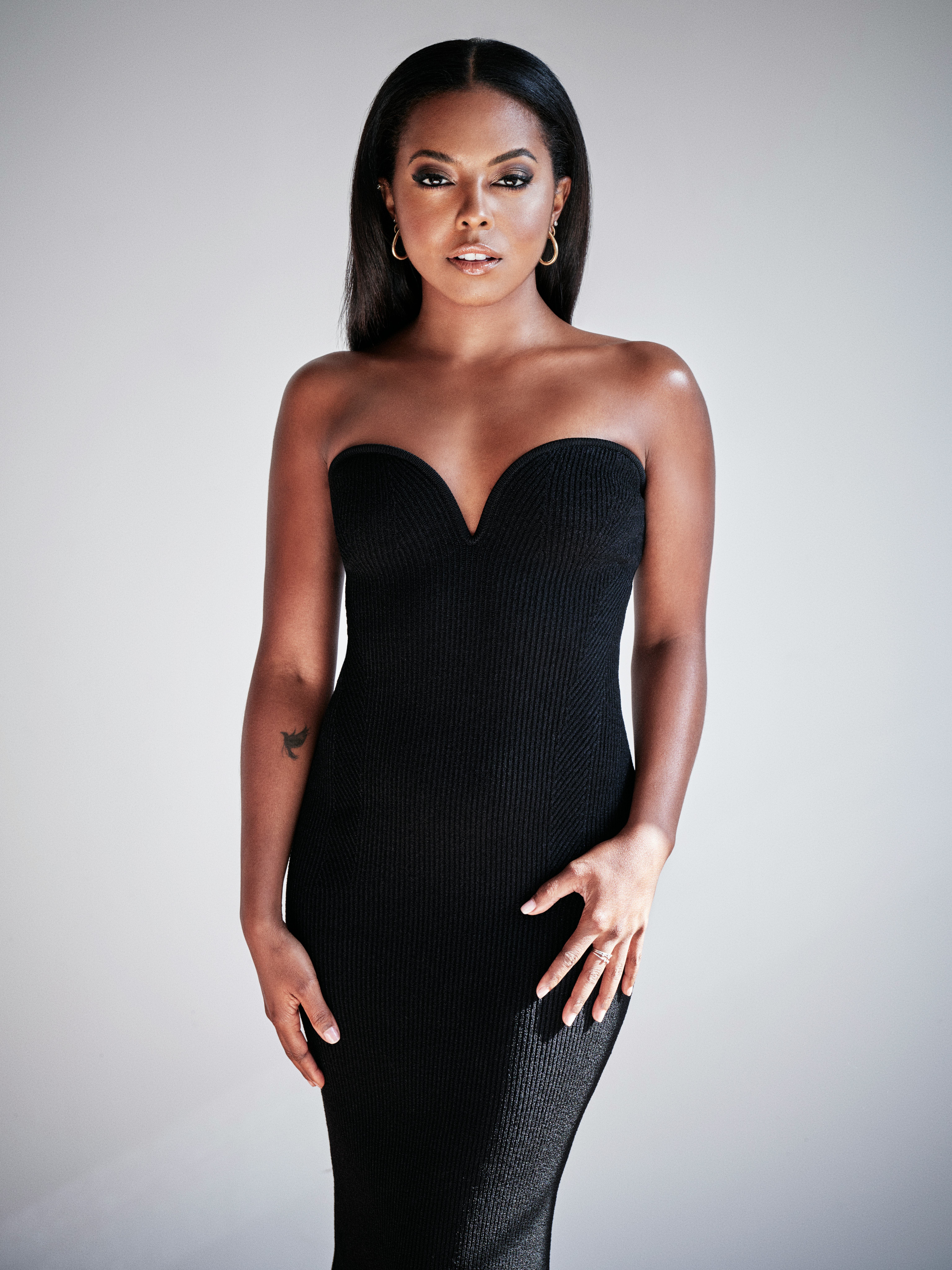Adrienne Warren is an athlete in multiple senses of the word. Growing up, she trained in basketball and track and field—but her prowess on the Broadway stage should also be described as athletic. Whether doing cheerleading backflips in Bring It On or giving her all as the Queen of Rock ‘n’ Roll in her Tony-winning Broadway production of Tina, the actress’ athletic background has proven vital for her career—a feat which, however ironic, is not lost on Warren, whose parents coached football, track, and basketball.
“It’s allowed me to constantly remain a student of life and to take these challenges head-on, to approach them as an athlete first,” she tells W over the phone, calling from South Africa where she is currently filming Gina Prince-Bythewood’s historical epic alongside Viola Davis, John Boyega, and Thuso Mbedu. “It has helped me to take care of my body as well as connect with the characters in different ways—sometimes [through] physical transformation and sometimes by forcing me to not be afraid of those challenges I might have otherwise feared.”
Before the world will get to see The Woman King, which is based on a true story about an all-female military unit in the real-life West African Kingdom of Dahomey, Warren takes on the portrayal of another real-life hero. In Women of the Movement, the forthcoming ABC miniseries, the actress will play Mamie Till-Mobley, the Civil Rights activist and mother of Emmett Till. “These roles have come my way for a reason—I believe there’s a reason for everything,” the actress says. “I think one of those reasons might be the care I choose to take with telling the stories of our ancestors. It’s a responsibility I don’t take lightly.”
After Warren was casted as Till-Mobley in Women of the Movement, which is based on Devery S. Anderson’s book Emmett Till: The Murder That Shocked the World and Propelled the Civil Rights Movement, she “wanted to dive into it headfirst” when filming began. “That was about finding the humanity of who she is,” she says. “One thing about these unbelievable tragic stories of young people who are taken from us is that it tells a story that continues to happen over and over again, and often we know these people as victims. We do not know them as human beings.”
The actress also points out that the six-episode limited series does not begin with 14-year-old Till’s murder by Roy Bryant and J.W. Milam. Instead, it shows him as the young boy he was, having dinner with his mother and wanting to play outside. “We started the series with love, with a family, with human beings. Many people don’t know the moments in between—they only know that Mamie made this decision to have an open casket, to put her pain on the world’s stage. But how did she get to that decision?” Warren says. “We often see and portray Black women as strong superheroes, but we never see how we get our capes. No one ever asks, no one is ever interested in what happens when the door closes and we’re alone. That is what I was interested in telling: bringing humanity to the loved ones who are left behind at the hands of ignorance and hate.”
Bryant and Milam confessed to lynching and mutilating Till’s body a year after their trial by an all-white jury found them both not guilty (they were protected by double jeopardy). But Till-Mobley had decided to make her son’s funeral public, to show the world exactly what those men had done. Many consider this moment to be a turning point in the Civil Rights movement of the late 1950s and 1960s. “For the rest of the episodes, you will always remember that he is a little boy. We say his age in every single episode, because during the trial they portrayed him as a man,” Warren says.
“I was so shocked at just how young Mamie was,” Warren goes on. “She was 33 when Emmett died. I think when we see our heroes, especially in leaders of the Civil Rights movement, we look at photos of Martin Luther King, Jr. and Malcolm X, and those photos are in black and white. We often think they’re so much older than they were when they were here. Because of her youth, it wasn’t that complicated for her to make these decisions. She was just, at the core, a mother who loved deeply and who was in pain. I wanted to do everything I possibly could to bring the truth and the honesty behind that moment to the screen.”
When Warren wraps up production on The Woman King, she will be reflecting on lessons learned, some of which came directly from Tina Turner when she portrayed her during her Tony Award-winning run on Broadway. “There are no shortcuts to hard work,” she says. “I have learned not to be afraid of the challenges, not to be afraid of the hardship that may come in my life, but to know that there are moments that happen for you, to strengthen you, so that you can become the person you are meant to be—or so that you may find something that will make you, you.”
Source: Read Full Article

